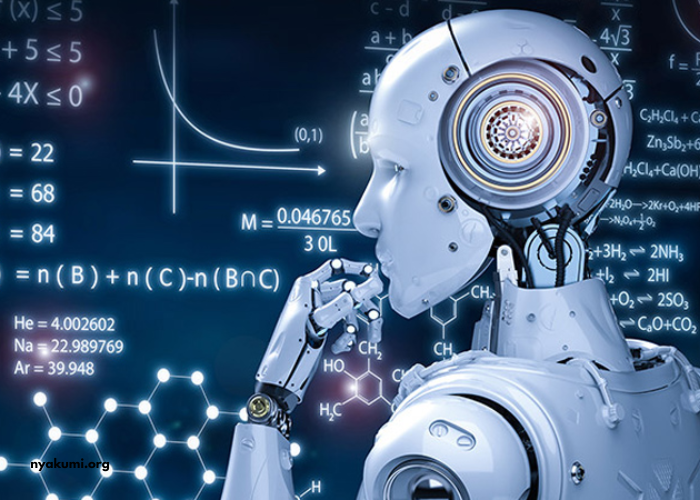The rapid evolution of artificial intelligence (AI) is reshaping the digital landscape, fundamentally altering the way industries, businesses, and individuals operate. AI innovations have become the cornerstone of technological progress, driving transformative changes across a myriad of domains. This article delves into the multifaceted world of AI, exploring its groundbreaking innovations, their profound impact on the digital sphere, and the promising future they herald.
Understanding AI: A Brief Overview
Artificial Intelligence refers to the simulation of human intelligence in machines programmed to think, learn, and adapt. These systems can perform tasks that traditionally required human intellect, such as decision-making, problem-solving, and language processing. AI is categorized into:
- Narrow AI: Specialized systems designed to perform specific tasks (e.g., virtual assistants like Siri or Alexa).
- General AI: Hypothetical systems capable of performing any intellectual task a human can undertake.
- Superintelligent AI: A speculative concept of AI surpassing human intelligence in all aspects.
AI Innovations Transforming Industries
AI innovations are leaving an indelible mark on various industries, enhancing efficiency, reducing costs, and enabling unprecedented capabilities.
Healthcare: Revolutionizing Patient Care
AI-powered tools are enabling early disease detection, personalized treatment plans, and advanced medical research.
- Applications in Diagnostics: Tools like IBM Watson and Google DeepMind analyze medical images to identify conditions such as cancer or neurological disorders with high accuracy.
- Virtual Health Assistants: Chatbots and virtual assistants provide 24/7 patient support, medication reminders, and preliminary health advice.
- Drug Development: AI accelerates drug discovery by predicting molecular interactions, saving years of research and billions in costs.
Finance: Enhancing Decision-Making and Security
The financial sector leverages AI to optimize operations and combat fraud.
- Algorithmic Trading: AI-driven algorithms analyze market trends and execute trades at lightning speed.
- Fraud Detection: Machine learning models detect unusual patterns, minimizing financial crime risks.
- Personalized Banking: Chatbots and recommendation engines improve customer service by offering tailored financial solutions.
Retail: Elevating the Shopping Experience
Retailers harness AI to enhance customer experiences and streamline supply chains.
- Recommendation Engines: AI algorithms analyze browsing and purchase history to suggest products.
- Inventory Management: Predictive analytics prevent stock shortages and overstocking.
- AI-Powered Chatbots: Provide instant support to shoppers, increasing satisfaction and sales.
Education: Personalized and Accessible Learning
AI is transforming education by tailoring learning experiences and making resources widely accessible.
- Adaptive Learning Platforms: Tools like Duolingo adjust difficulty levels based on learner progress.
- Automated Grading: AI systems reduce teachers’ workload by evaluating assignments and providing feedback.
- Accessible Education: AI-driven transcription and translation tools break language barriers in global learning.
Entertainment: Creating Immersive Experiences
The entertainment industry benefits from AI in content creation, recommendation, and user engagement.
- AI in Gaming: Real-time decision-making and adaptive storytelling elevate gaming experiences.
- Content Curation: Platforms like Netflix and Spotify use AI to recommend personalized content.
- Deepfake Technology: While controversial, deepfakes open avenues for creative expression in filmmaking.
Key AI Technologies Driving Innovation
Machine Learning (ML)
Machine Learning, a subset of AI, enables systems to learn from data and improve over time. From predictive analytics to personalized recommendations, ML is at the core of AI-driven innovations.
Natural Language Processing (NLP)
NLP allows machines to understand, interpret, and respond to human language. Applications include chatbots, voice assistants, and language translation tools.
Computer Vision
Computer vision empowers systems to analyze visual data. From facial recognition to autonomous vehicles, this technology is revolutionizing sectors like security and transportation.
Robotics and Automation
AI-driven robots are transforming industries with enhanced precision, speed, and efficiency. They play pivotal roles in manufacturing, logistics, and even healthcare surgeries.
Generative AI
Generative AI models like GPT and DALL-E produce human-like text and images, sparking creativity in content generation, design, and more.
Impact of AI Innovations on the Digital World
The digital world is experiencing seismic shifts due to AI, influencing businesses, governments, and societies at large.
Data-Driven Decision Making
AI’s ability to analyze massive datasets enables organizations to make informed decisions, enhancing productivity and profitability.
Enhanced Customer Experiences
From personalized shopping to instant support, AI elevates user experiences, fostering brand loyalty and customer satisfaction.
Automation of Repetitive Tasks
AI automates mundane tasks, freeing human resources for strategic and creative endeavors. This increases efficiency and reduces operational costs.
Cybersecurity Advancements
AI enhances cybersecurity by detecting anomalies, predicting threats, and neutralizing risks before they escalate.
Democratization of Technology
AI makes advanced technology accessible to smaller businesses and underprivileged regions, bridging digital divides.
Challenges in AI Adoption
Despite its potential, AI adoption comes with challenges:
Ethical Concerns
- Bias in Algorithms: AI systems can perpetuate biases in training data.
- Privacy Issues: Widespread data collection raises concerns about user privacy.
Job Displacement
Automation may lead to job losses in certain sectors, necessitating workforce reskilling.
High Costs and Complexity
Developing and implementing AI solutions require substantial investment and expertise.
Regulation and Accountability
Governments struggle to establish clear regulations for AI, especially in areas like autonomous systems and deepfakes.
Future Trends in AI Innovations
The future of AI holds immense promise, with anticipated advancements poised to redefine the digital world further:
Explainable AI (XAI)
Efforts are underway to make AI systems more transparent, enabling users to understand decision-making processes.
AI in Sustainability
AI will drive sustainable practices, optimizing energy consumption and advancing environmental research.
Quantum Computing Integration
The synergy between AI and quantum computing will unlock unprecedented computational power, solving complex problems faster.
AI for Social Good
AI applications in areas like disaster response, healthcare accessibility, and poverty alleviation will create significant societal impact.
Augmented AI
Rather than replacing humans, AI will increasingly work alongside them, enhancing their capabilities and decision-making.
Adopting AI Responsibly
To harness AI’s full potential, it is essential to adopt it responsibly:
- Foster Ethical AI Development: Implement bias detection and mitigation strategies during AI training.
- Promote Inclusive Access: Ensure AI technologies are affordable and accessible to diverse communities.
- Encourage Collaboration: Governments, businesses, and academia must collaborate to set guidelines and advance AI research.
- Invest in Education and Reskilling: Equip the workforce with AI-related skills to adapt to changing job landscapes.
Conclusion
AI innovations are undoubtedly revolutionizing the digital world, driving unprecedented advancements across industries. From personalized healthcare to immersive entertainment, AI’s influence is pervasive and transformative. However, addressing challenges like ethical concerns, job displacement, and regulatory hurdles is crucial to ensuring AI’s positive impact on society.
The future of AI lies in responsible development and adoption, fostering a digital ecosystem that is innovative, inclusive, and beneficial for all. As we stand at the precipice of this technological revolution, embracing AI’s potential while mitigating its risks will be the key to unlocking a brighter, smarter, and more connected world.





